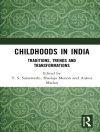Why is it that even after two centuries of formal political independence and after the implementation of policies that were supposed to lead them to development, Latin American countries have not managed to overcome underdevelopment, poverty, and dependency? Why are the contradictions inherent to capitalism exacerbated in Latin America, in such a way that this region appears as the denial of the civilising promises inaugurated by capitalist modernity? Why do the asymmetrical relations in the world system and labour super-exploitation tend to deepen in the region, instead of being reduced? Why do the main social processes that challenge the capitalist relations of exploitation and domination take place in the ‘periphery’ of the system, not in its imperialist core? The essays collected in this book present the answers that Marxist dependency theory has formulated to these and other questions, by highlighting the processes and relations that characterise the heterogeneous deployment of capitalism as a world system and that define the particularities of Latin American dependent capitalism: the super-exploitation of labour-power, unequal exchange, the rupture in the cycle of capital, among others. It also highlights the relevance of the perspective inaugurated by Marxist dependency theory to explain the current problems of Latin America.
O autorze
Cristóbal Reyes is a Mexican economist from the National Autonomous University of Mexico (UNAM) and holds a master’s degree in Latin American Studies from the same university. He is currently studying a Ph D in Latin American Studies at UNAM. He is professor at the School of Economics of the National Polytechnic Institute (Mexico). He is co-author, with Jaime Osorio, of the book La diversidad en el sistema mundial capitalista. Procesos y relaciones en la heterogeneidad imperante (Gedisa, Mexico, 2020).












